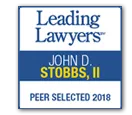
Key Highlights
- White collar crimes are non-violent criminal offenses committed by individuals or organizations in professional or business environments.
- These crimes can include fraud, embezzlement, insider trading, and money laundering.
- White collar crimes have far-reaching impacts, including financial losses, erosion of trust, distortion of market competition, and social inequality.
- Famous examples of white collar crimes include the Enron scandal and the Bernie Madoff Ponzi scheme.
- Understanding white collar crimes is essential for preventing and combating these offenses.
- Effective regulations, education, and awareness can help mitigate the occurrence and effects of white collar crimes.
Introduction
White collar crimes are a significant concern in modern society. These non-violent criminal offenses, committed by individuals or organizations in professional or business environments, can have far-reaching impacts on individuals, corporations, and economies. Understanding white collar crimes is essential for preventing and combating these offenses.
White collar crimes encompass a wide range of fraudulent activities, including fraud, embezzlement, insider trading, and money laundering. These crimes are often characterized by deceit, breach of trust, or concealment rather than physical force. White collar criminals are usually individuals in positions of power or influence, who take advantage of their professional roles for personal gain.
The consequences of white collar crimes can be devastating. Victims may suffer significant financial losses, companies may face bankruptcy, and economies may experience instability. The erosion of trust in economic and political institutions, the distortion of market competition, and the exacerbation of social inequality are additional impacts of these crimes.
To effectively prevent and combat white collar crimes, it is crucial to have effective regulations, education, and awareness. By understanding the nature of these crimes, their impact, and the mechanisms behind them, individuals and organizations can take steps to protect themselves and contribute to a safer and fairer society.
Defining White Collar Crime
White collar crime is a term used to describe non-violent criminal offenses committed by individuals or organizations in professional or business environments. These crimes typically involve deceit, breach of trust, or concealment rather than physical force. The term “white collar crime” was first used by sociologist Edwin Sutherland in 1939 to draw attention to the types of crimes committed by individuals of high social status.
Researchers approach white collar crime from three angles: the type of offender, the type of crime, and organizational culture. The type of offender often includes individuals with higher socio-economic status, such as business or government professionals. The type of crime is economic in nature, involving financial fraud or deception. Organizational culture refers to offenses committed within a business or network, including corporate crimes like environmental law or health and safety violations.
The Federal Bureau of Investigation (FBI) defines white collar crime as “illegal acts which are characterized by deceit, concealment, or violation of trust and which are not dependent upon the application or threat of physical force or violence.” These crimes are often motivated by financial gain, and individuals who commit white collar crimes are typically white men from middle-class backgrounds with at least some higher education. They are often employed, married, and have religious and community affiliations.
White collar crimes can occur at both the federal and state levels. Federal agencies like the FBI, the Internal Revenue Service (IRS), and the Securities and Exchange Commission (SEC) investigate and prosecute these crimes, especially when they involve interstate commerce or the banking industry. State and local law enforcement also play a role in investigating and pursuing white collar crimes that occur within their jurisdiction.
The Evolution and Scope of White Collar Crimes
White collar crimes have evolved and expanded over the years, with new types of crimes emerging as technology advances. Securities fraud, insider trading, and money laundering are among the most common types of white collar crimes.
Securities fraud involves deceptive practices in the stock market or other investment markets. This can include false or misleading statements, insider trading, or manipulating stock prices. Insider trading occurs when someone with inside information about a company trades on that information for personal profit, often at the expense of other investors. Money laundering is the process of making illegally obtained money appear legitimate through a series of transactions.
With the increasing reliance on technology, white collar crimes have also taken on new forms. Computer crimes, such as hacking, identity theft, and cyber fraud, have become prevalent in the digital age. These crimes often involve the use of technology to gain unauthorized access to sensitive information or financial resources.
The scope of white collar crimes is vast and can encompass a wide range of illegal activities. From corporate fraud to healthcare fraud, these crimes can have significant financial and societal impacts. It is essential for individuals and organizations to stay informed about the evolving nature of white collar crimes and take proactive measures to protect themselves from becoming victims.
Common Types and Examples of White Collar Crime
White collar crimes encompass a wide range of fraudulent activities. Here are some common types of white collar crimes:
- Identity theft: This involves the unauthorized use of someone else’s personal information to commit fraud or other criminal activities.
- Mortgage fraud: This occurs when individuals or organizations deceive lenders by providing false information in order to obtain a mortgage loan.
- Tax evasion: This involves intentionally avoiding paying taxes owed to the government by falsifying tax returns or concealing income.
- Ponzi scheme: A Ponzi scheme is an investment fraud in which early investors are paid with funds from later investors, rather than from actual profits.
These are just a few examples of white collar crimes, and new types of crimes continue to emerge as technology advances and criminals find new ways to exploit vulnerabilities. It is important for individuals and organizations to be aware of these crimes and take necessary precautions to avoid becoming victims.
The Mechanisms of White Collar Crime
White collar crimes are typically committed through illegal activities that aim to achieve financial gain. These crimes often involve deceit, concealment, or violation of trust. The mechanisms behind white collar crimes vary depending on the specific type of crime. For example, securities fraud may involve false or misleading statements, while money laundering may involve a series of transactions to make illegally obtained money appear legitimate. Understanding how white collar crimes are committed is crucial for prevention, detection, and prosecution.
How White Collar Crimes are Committed
White collar crimes can be committed through a variety of illegal activities that aim to achieve financial gain. These crimes often involve deceit, concealment, or violation of trust. Some common ways white collar crimes are committed include:
- Fraud: This can include misrepresenting financial records, forging documents, or engaging in other deceptive practices to obtain money or property illegally.
- Embezzlement: This involves misappropriating funds or assets entrusted to an individual, often in a professional or business setting.
- Public corruption: This refers to the abuse of power by government officials for personal gain, such as accepting bribes or engaging in nepotism.
- Money laundering: This is the process of making illegally obtained money appear legitimate through a series of transactions.
These are just a few examples of how white collar crimes are committed. The methods used can vary depending on the specific type of crime and the ingenuity of the perpetrator. Detecting and prosecuting white collar crimes often requires expertise in financial investigations and the use of advanced technology.
The Role of Technology in Facilitating White Collar Crimes
Technology has played a significant role in facilitating white collar crimes. The advent of the internet and digital communication has provided new opportunities for criminals to exploit vulnerabilities and commit fraudulent activities.
Computer crimes, such as hacking, identity theft, and cyber fraud, have become prevalent in the digital age. Criminals can use technology to gain unauthorized access to sensitive information, steal personal identities, and carry out financial fraud. The increasing complexity and interconnectedness of digital systems have made it easier for criminals to exploit loopholes and evade detection.
Law enforcement agencies, such as the Federal Bureau of Investigation (FBI) and the Securities and Exchange Commission (SEC), have recognized the importance of technology in combating white collar crimes. They have developed specialized units and advanced tools to investigate and prosecute these crimes. However, as technology continues to evolve, so do the methods used by criminals. Staying ahead of the curve and continuously adapting investigative techniques and regulations are essential in combating white collar crimes.
A Beginner’s Guide to Navigating White Collar Crime Defense
Navigating the complexities of white collar crime defense can be challenging for individuals facing criminal charges. Understanding your rights, the legal process, and the steps to take can help ensure a strong defense. Consulting with an experienced criminal defense attorney is crucial for obtaining the necessary guidance and representation. This guide will provide an overview of the key considerations and steps involved in navigating white collar crime defense.
Understanding Your Rights and the Legal Process
When facing white collar crime charges, it is essential to understand your rights and the legal process. This understanding can help you make informed decisions and protect your interests. Key considerations include:
- Right to legal advice: You have the right to consult with an attorney to ensure your rights are protected throughout the legal process.
- Criminal justice system: Familiarize yourself with the criminal justice system, including the roles of law enforcement, courts, and legal professionals.
- Criminal courts: Understand the procedures and rules followed in criminal courts, including the different stages of a criminal case.
- Legal advice: Seek legal advice from an experienced criminal defense attorney who specializes in white collar crimes to develop a strong defense strategy.
Navigating the legal process can be complex, especially in white collar crime cases. Working with a knowledgeable attorney can help you navigate the system effectively and increase your chances of a favorable outcome.
What You Need to Get Started
When facing white collar crime charges, there are several key steps to take. These include:
- Seeking legal advice: Contact an experienced criminal defense attorney who specializes in white collar crimes to assess your case and develop a defense strategy.
- Gathering relevant documents: Collect any documents or evidence related to your case, such as financial records, emails, or contracts.
- Cooperating with your attorney: Provide your attorney with all the necessary information and cooperate fully throughout the legal process.
- Understanding the charges: Familiarize yourself with the specific charges against you and the potential penalties you may face.
- Considering plea negotiations: Explore the possibility of plea negotiations with the prosecution, which can result in reduced charges or penalties.
By taking these steps and working closely with your attorney, you can be better prepared to navigate the white collar crime defense process effectively.
Step 1: Identifying a White Collar Crime
The first step in navigating white collar crime defense is identifying the specific crime you are being charged with. White collar crimes can encompass a wide range of illegal activities, such as corporate fraud, health care fraud, or real estate fraud. Understanding the specific charges against you is crucial for developing a strong defense strategy.
Work closely with your attorney to review the evidence and determine the elements of the crime you are being accused of. This analysis will help identify any weaknesses in the prosecution’s case and allow your attorney to build a solid defense strategy. Remember, each white collar crime has its own unique elements and defenses, so it is essential to tailor your defense approach accordingly.
Step 2: Seeking Legal Advice
Once you have identified the specific white collar crime you are being charged with, it is crucial to seek legal advice from an experienced criminal defense attorney. White collar crimes are complex, and navigating the legal process requires expertise in this area of law.
An attorney specializing in white collar crime defense will have the knowledge and experience to assess your case, identify potential defenses, and guide you through the legal process. They will help you understand your rights, the charges against you, and the potential penalties you may face.
When choosing an attorney, look for someone with a track record of success in handling white collar crime cases. Schedule a consultation to discuss your case and ask any questions you may have. By working closely with an attorney, you can ensure that your rights are protected and that you have the best possible defense strategy.
Step 3: Collecting and Preserving Evidence
Collecting and preserving evidence is crucial in white collar crime defense. Your attorney will work with you to gather any relevant documents, records, or other evidence that can support your defense.
This may include financial records, emails, contracts, or any other documentation that may demonstrate your innocence or cast doubt on the prosecution’s case. It is important to provide your attorney with all the necessary information and cooperate fully in the evidence-gathering process.
Preserving evidence is equally important. This involves taking steps to ensure that relevant evidence is not lost, destroyed, or tampered with. Your attorney will guide you on how to preserve evidence effectively, which may include making copies, securing original documents, or taking other necessary precautions.
By collecting and preserving evidence, you and your attorney can build a strong defense strategy that challenges the prosecution’s case and protects your rights.
Step 4: Understanding the Charges and Possible Defenses
Understanding the specific charges against you and the possible defenses is essential in white collar crime defense. Your attorney will explain the elements of the crime you are being accused of and the potential penalties you may face if convicted.
Based on this understanding, your attorney will develop a defense strategy tailored to your case. Possible defenses in white collar crime cases may include:
- Lack of intent: Arguing that you did not have the intent to commit the crime.
- Insufficient evidence: Challenging the prosecution’s evidence and arguing that it does not prove your guilt beyond a reasonable doubt.
- Entrapment: If you can demonstrate that you were induced or coerced into committing the crime by law enforcement.
- Mistaken identity: If you can show that you were wrongly identified as the perpetrator of the crime.
Your attorney will assess the strengths and weaknesses of the prosecution’s case and determine the most effective defense strategy for your situation.
The Impact of White Collar Crime
White collar crimes have a significant impact on both the economy and individuals. Understanding the consequences of these crimes is crucial for preventing and combating them effectively.
On the Economy and Society
White collar crimes can have a profound impact on the economy and society as a whole. These crimes can destabilize financial markets, erode investor confidence, and even contribute to economic recessions. The Enron scandal and the Bernie Madoff Ponzi scheme are prime examples of how white collar crimes can cause widespread financial devastation.
The impact of white collar crimes extends beyond the financial realm. Victims of these crimes can suffer significant financial losses, leading to personal and emotional distress. Additionally, these crimes can erode trust in economic and political institutions, contribute to social inequality, and undermine the overall fabric of society.
Preventing and combating white collar crimes requires effective regulations, education, and awareness. By understanding the impact of these crimes, individuals and organizations can take proactive measures to protect themselves and contribute to a safer and fairer society.
On the Victims
White collar crimes can have devastating effects on the victims involved. Individuals who fall victim to investment fraud, identity theft, or other white collar crimes can suffer significant financial losses, sometimes losing their life savings or facing bankruptcy. These crimes can cause immense emotional distress and can take years to recover from.
Insurance fraud is another common white collar crime that directly impacts individuals. Policyholders who fall victim to insurance fraud may face increased insurance premiums and difficulty in obtaining coverage in the future. In some cases, individuals may be left without the coverage they need in times of crisis, putting their well-being at risk.
It is important to recognize the impact of white collar crimes on victims and to provide support and resources to help them recover. Additionally, efforts should be made to prevent these crimes through education, awareness, and effective regulations.
Preventative Measures Against White Collar Crime
Taking preventative measures against white collar crime is crucial for individuals and organizations. By implementing strategies and safeguards, the risk of falling victim to these crimes can be reduced.
Individual and Organizational Strategies
Both individuals and organizations can take proactive steps to prevent white collar crimes. Some key strategies include:
- Awareness and education: Stay informed about the latest white collar crime trends and techniques. Educate yourself and your employees about the risks and warning signs of these crimes.
- Internal controls: Implement internal controls and checks and balances to prevent fraud and other illegal activities within your organization.
- Compliance programs: Develop and enforce compliance programs that promote ethical behavior and provide guidelines for employees to follow.
- Whistleblower programs: Establish mechanisms for employees to anonymously report suspected wrongdoing within the organization.
- Regular audits: Conduct regular audits to identify any irregularities or potential red flags.
By incorporating these strategies into daily practices, individuals and organizations can create a culture of transparency, integrity, and accountability, reducing the risk of falling victim to white collar crimes.
Conclusion
White collar crime is a complex issue that impacts individuals, businesses, and society at large. Understanding the evolution, types, and mechanisms of white collar crimes is crucial in navigating this realm. By recognizing your rights and seeking legal advice early on, you can better defend against potential charges. Preserving evidence and comprehending possible defenses are key steps in this process. The impact of white collar crime extends beyond monetary losses, affecting both the economy and victims. Preventative measures, whether at an individual, organizational, or governmental level, are essential in combatting these offenses. Stay informed and proactive to protect yourself and others from the repercussions of white collar crime.
Frequently Asked Questions
What Constitutes a White Collar Crime?
White collar crimes are illegal acts characterized by deceit, concealment, or violation of trust that are committed by individuals or organizations in professional or business environments. These crimes are typically motivated by financial gain and do not involve physical force or violence.
What’s the different between state and federal white collar crime?
State white collar crimes are prosecuted under state law, involving offenses within a specific state jurisdiction. Federal white collar crimes fall under federal law and involve offenses that cross state lines or impact interstate commerce. The key difference lies in the level of government overseeing the investigation and prosecution.




